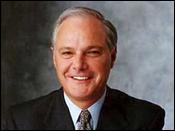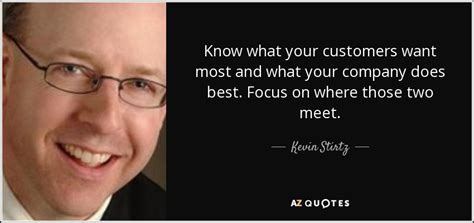A Quote by Jim Cantalupo
And so if your competitors aren't growing, if there isn't a competitive reason to grow, and you want focus and discipline to add customers to existing stores, you adjust your strategy.
Quote Topics
Related Quotes
What business strategy is all about-what distinguishes it from all other kinds of business planning-is, in a word, competitive advantage. Without competitors there would be no need for strategy, for the sole purpose of strategic planning is to enable the company to gain, as efficiently as possible, a sustainable edge over its competitors.
I'm a spreadsheet guy. But you get to that moment of truth, and it has nothing to do with a spreadsheet. You've got to factor in what your competitors are doing, what the technology is doing, what your shareholders want, what your employees want, what your customers want, and you've got to make it happen sometimes.
The experience curve says that your costs should probably decline by 15% or 20% with every doubling in your experience making a product, approximately how many of them you turn out. It also says that if you have the biggest market share, meaning the most experience of anybody in your competitive set, you should have the lowest costs, and the resultant capability to underprice your competitors, maybe forever. The abiding lesson of the experience curve is that companies need to discipline themselves to keep reducing their costs, year in, year out, if they are to remain competitive.
Start by identifying the qualities or characteristics that make you distinctive from your competitors - or your colleagues. What have you done lately - this week - to make yourself stand out? What would your colleagues or your customers say is your greatest and clearest strength? Your most noteworthy (as in, worthy of note) personal trait?
































